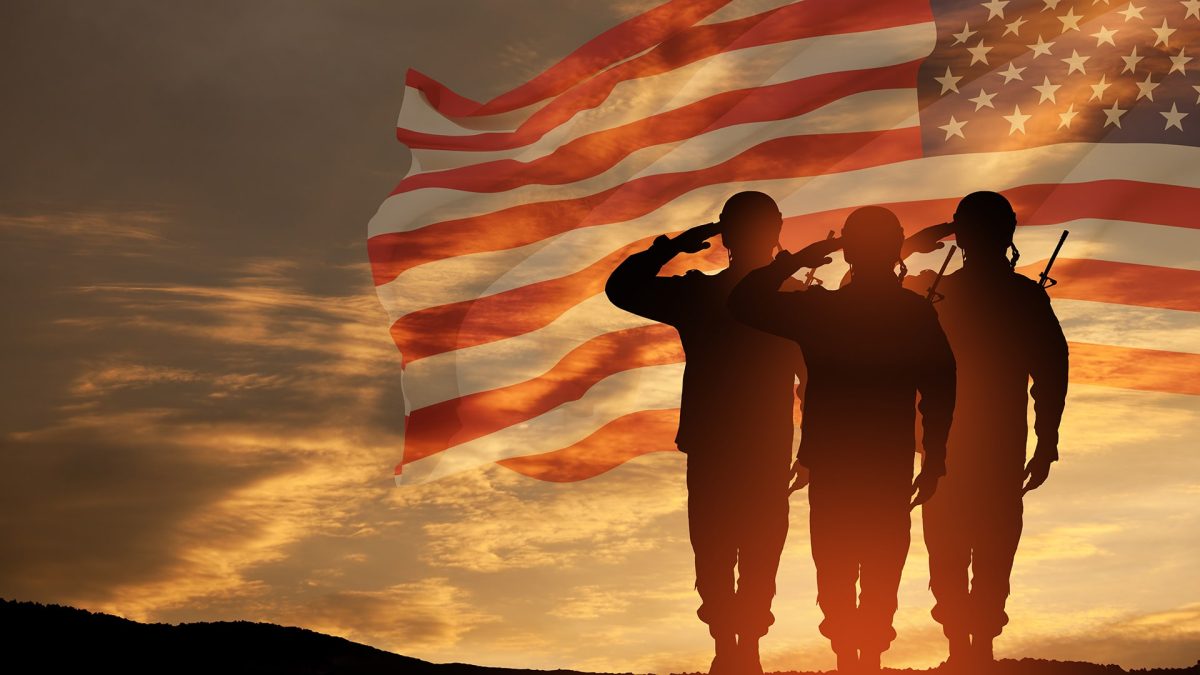Every November, the nation pauses to honor the men and women who have served in the armed forces. Veterans Day is more than just a holiday; it’s a chance to reflect on the sacrifices veterans have made for the country’s freedoms.
Veterans have many different motivations. For some joining the military was a family tradition, while others were drawn by the educational opportunities. A few joined to find a deeper sense of purpose in life. Veteran Aaron James described the reason behind his call to duty.
“I did not know what I wanted to do after high school. I knew I wasn’t ready for college. I saw a Marine recruiter wearing his nice dress blues, and I knew that’s what I wanted to do,” James said.
Whether they served decades ago or more recently, each veteran’s story highlights the diverse motivations and locations that define their journeys. Retired soldier Aricai Berry shared the places they went and things they did during their service.
“I joined the Army Reserve in 1990. I attended Tuskegee University and got into the ROTC program. At that time, I was in the National Guard and became an SMP cadet,” Berry said. “I was commissioned in 1995 as a quartermaster officer, and I was on active duty from 1995 to 2016.”
Whether through technology or medicine, the jobs the veterans took on during their service continue to impact their lives after they leave the military. Each position was a stepping stone, helping them grow and develop skills that would define their futures. Past soldier Eboni Cleshay was assigned a job that became part of her military experience.
“I was an information system technician. I had a top secret security clearance, a lot of what I did was working with comms, ships, and allies,” Cleshay said.
Serving in the Armed Force may have its benefits, but it comes with some downsides. Their time in the military was defined not just by triumphs, but by the challenges they faced while performing duties for the nation. Cleshay recalls the tough realities of military life.
“Being a woman in the military, being in a position of leadership. At that time, the military was operating as a man’s job. Having children in the military was a challenge as well. I served during 9/11 and being overseas, I had to send my children back home to live with my parents so I could fulfill my duties as a sailor,” Cleshay said.
Being a soldier comes with unforgettable moments that leave a lasting impact. These moments, whether of heroism, or unity remain vivid in the minds of veterans, continuing to shape their lives long after they’ve hung up their uniforms. Berry, remembers some of the situations she encountered during her time.
“One of the adventures I remembered was the deployment to Iraq. We had a mission of clearing out all of the equipment. It was a daunting task, we did it for five days. We got the equipment out of Iraq to Kuwait,” Berry said
At the end of their time, these soldiers transition back to their civilian life. These changes are a challenging and difficult journey that veterans take a lot of time to adjust to. First Sergeant Daniel Purdom passed through some rocky paths before he adapted to the regular world.
“It was mostly just understanding that people don’t have the same work ethic. They move at a slower pace, and there’s less collaboration. I’ve noticed that as a teacher, some teachers prefer to stick to their own thing, and they don’t want to collaborate quite as much,” Purdom said.
Despite the difference in experience, the common thread is clear: veterans desire to be understood for more than just their military service. They carry stories, challenges, and lesson learned—things that can’t always be seen, but are always felt. Success Teacher Gabrielle Gutierrez, spoke about the complexities of the experiences she wishes Civilians could understand.
“Don’t always expect them to come visit you. You need to take time to go visit them. The military doesn’t make any money at all, so they often don’t have money to spend, travel and visit. They don’t get as many days off as everyone else either,” Gutierrez said.
Whether through duty, camaraderie, or the lessons learned, veterans hope their service is remembered as a testament to their dedication, sacrifice, and the unspoken bonds that tie them together. With a deep sense of pride, Counselor Wakita Lamb, hopes for her contribution to be remembered by future generations.
“I want people to know that I made a sacrifice to serve my country and make an impact on the people who are currently serving our country,” Lamb said.

